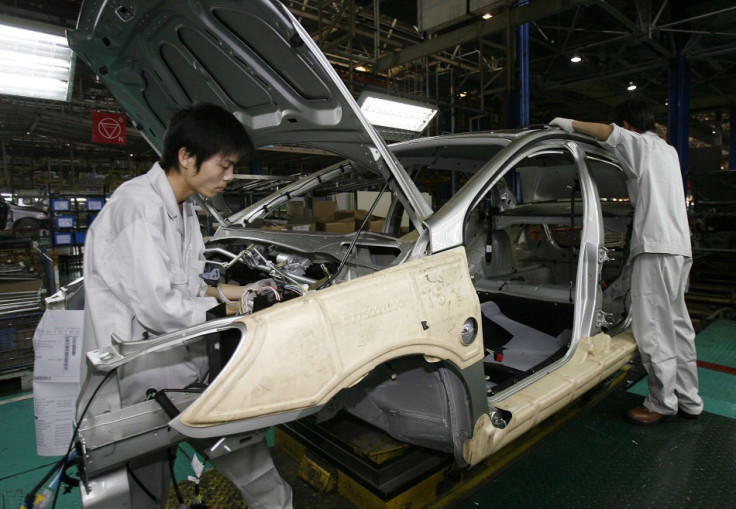China's manufacturing sector expands modestly on monetary easing and infrastructure projects

China's manufacturing sector expanded modestly amid weak domestic and international demand, indicating the country's monetary easing and infrastructure projects have started helping the economy.
The official manufacturing purchasing managers' index (PMI), which measures the performance of large industrial firms, remained the same at 50.1 in April.
The official PMI reading contrasts with the HSBC flash PMI that earlier showed a reading of 49.2 for April, down from 49.6 in March. A PMI reading below 50 indicates contraction in the sector.
Among the sub-indices of the official PMI, the production index rose by 0.5 points to 52.6, indicating that the industrial production will likely exceed 6.0% in April, from 5.6% in the previous month. Input price index also increased by 2.8points to 47.8, reflecting a rebound in the commodity prices.
However, the export orders index declined by 0.2 points to 48.1, pointing to the softness in the external sector.
"The continued expansion of the official PMI suggests that the growth momentum is picking up, though modestly, thanks to the rise of newly started projects and monetary policy easing," said economists at ANZ bank.
"As the economy still faces strong headwinds and the risk of deflation has not diminished, the authorities will need to continue to roll out easing measures in the coming months."
They added that China's investment cycle usually picks up strongly in the second quarter on newly started projects, pointing to rising commodity demand. To complement the cyclical cycle, a number of domestic and cross-border infrastructure projects will also start soon under the "Belt and Road" initiative.
Earlier, the country reported a 7% growth for the first quarter, the slowest quarterly growth since the first quarter of 2009. The weak growth is largely attributed to slower investment growth weighed down by the property sector.
In 2014, the economy expanded at a rate of 7.4%, the weakest pace in 24 years. In 2015, the country's growth is expected to come down to 7%.
© Copyright IBTimes 2025. All rights reserved.






















